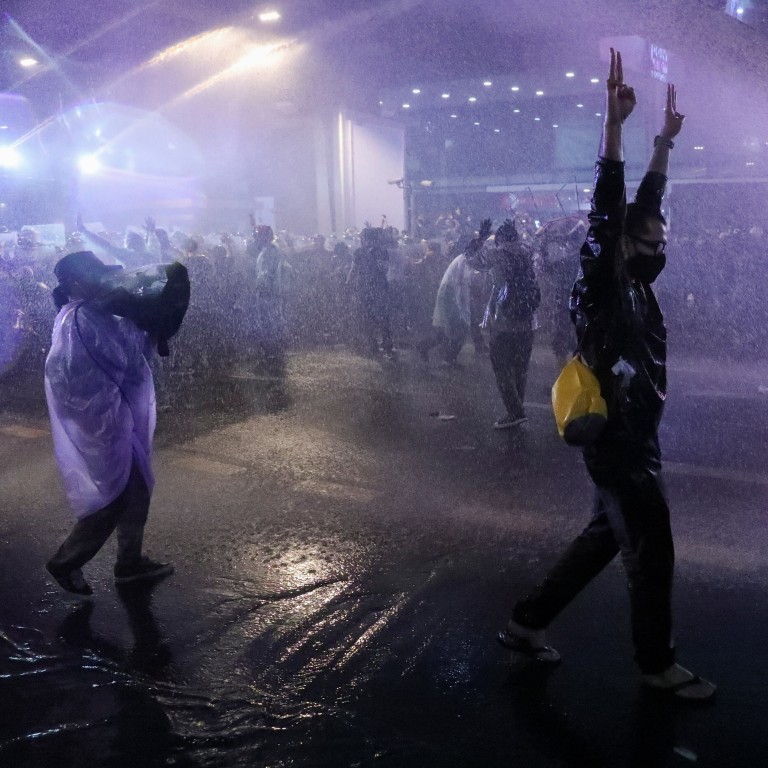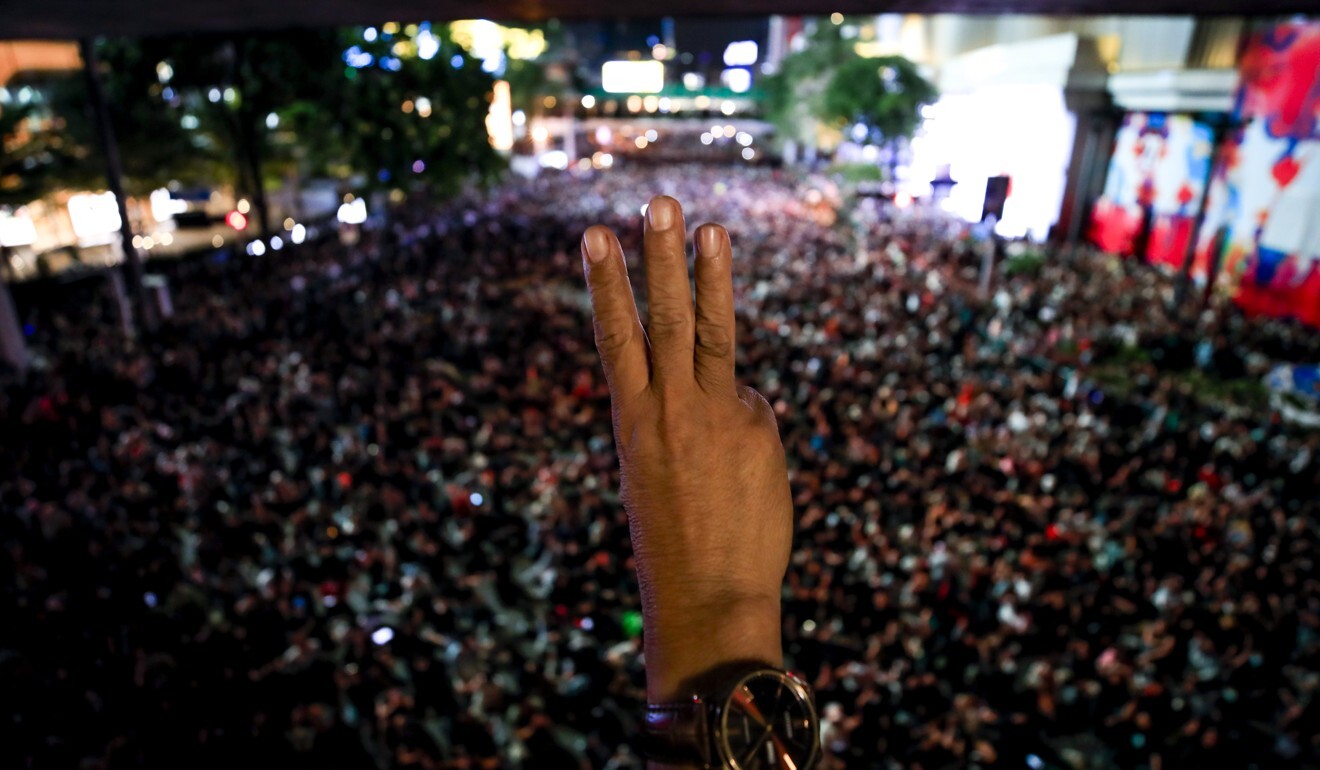
Thailand’s protesters are taking on the monarchy because of the military
- The Thai military seized power, refuses to accept an electoral mandate and thwarts political reforms, all in the name of defending the monarchy
- It’s hard to blame the anti-government protesters who have broadened their scope to also take on the royal family, especially as the king remains overseas
This is the third major protest since July, and it comes on the anniversary of the deadly 1973 military crackdown on students. But this clampdown is different, coming hours after protesters allegedly blocked a royal motorcade carrying the queen and her son, though videos indicate that the vehicle was allowed to pass.
As protesters rally, China opens its arms to embattled Thai government
While there has always been some republican sentiment, the former monarch Bhumibol Adulyadej enjoyed high degrees of popular legitimacy because his reign coincided with the spectacular transformation of Thailand from a poor agrarian society into a middle-income country with a burgeoning middle class, tied to the global economy.
While apologists for the late king would say he helped temper the military’s political ambitions, it is clear that, especially in his later years, two coups were thrown in his name and with his official blessing. Yet, most Thais believe that Bhumibol cared deeply about the country and devoted his life to the betterment of citizens until his death in October 2016.
The scandal-prone king is largely absent from his kingdom, spending most of his time in Germany, usually returning for little more than 24 hours. In contrast, his father rarely left Thailand so as to dedicate himself to the country’s development.
The power of ridicule: meet the man roasting Thai army with satire
As the Covid-19 pandemic wrecks Thailand’s economy, the king remains overseas. This is not what Thais have come to expect from their monarch.
Vajiralongkorn has been holed up in a lavish resort in the German Alps with his consort and harem. Under political pressure, the German Foreign Ministry declared that he cannot rule from Germany.
Upon his coronation, the king took over the Crown Property Bureau, a sprawling financial institution that controls large swathes of property, and major shareholdings. The CPB’s estimated US$30 billion in assets were previously held as a public trust. Today, he has sole authority over the CPB and can use it as his personal bank.
This comes at a time when Thailand’s economy is facing the sharpest recession since the 1997-98 Asian economic crisis. It contracted by over 12 per cent in the second quarter and will fall 8-10 per cent in 2020. Unemployment is at record levels, while seven in 10 people have seen their average monthly income drop by almost half. The World Bank estimates that 9.7 million of the country’s 69 million population are economically insecure.
From once being a constitutional monarchy, the Thai king has transformed to being closer to an absolute monarchy, with two military units now under his direct control. Academic Paul Chambers recently wrote about the career trajectory of military elites having served in these units.
‘Government’s got no game’: are Thai protesters gaining the upper hand?
YOUTH PROTESTERS
It is hard to blame the young protesters who have turned against the monarchy.
In their lifetime, politics has been dominated by the Thai military, which has staged two coups d’état since 2006 and clung to power by rigging the vote, gerrymandering, drafting a constitution in its favour, as well as hamstringing the opposition through waves of legal assaults, disbarments/disbandments, and prosecutions. In short, the current government is illegitimate, and would not be in power without a host of legal abuses and elite machinations.
The regime has already gone after opposition politicians, such as the head of the disbanded Future Forward Party Thanathorn Juangroongruangkit, that believes to be republicans committed to overthrowing the monarchy, despite their expressions of loyalty. But the students who are now in the streets have watched the politicians that they voted for, who gained a plurality of the vote, become systematically marginalised, all in the defence of the monarchy.
The military and their backed government are in a bind. They are committed to defending an indefensible king
The Thai economy has flatlined in this period of time, while peer competitors such as Vietnam are booming. Thailand’s inequality has surged since the 2006 coup, and today Thailand is one of the most unequal societies in the world, and the most inequitable in Asean. This shameless and economically detrimental accumulation of wealth has transpired under military rule, all with the monarch’s blessing.
The military and their backed government are in a bind. They are committed to defending an indefensible king, as they have identified the monarchy as one of the pillars of “Thainess”.
The military is scared because the defence of the monarchy is one of the ways that the military justifies its pervasive interference in political life. No monarchy, no justification for coups or political machinations. They might actually have to return to barracks and stop enriching themselves.

And the monarchy itself looks scared. Living in their European cocoon, protected by draconian lese-majesty laws, the royals have never known criticism, nor could they imagine it. And now they have tens of thousands of people risking their freedom and their future to demand reforms of the monarchy.
By seizing and stubbornly clinging to power, refusing to accept an electoral mandate, and thwarting fundamental political reforms, all in the name of defending the monarchy, the Thai military has broadened the scope of the protests beyond itself to the monarchy.
And despite over 40 arrests in the past day alone, not including the arrests of activists following the previous mass demonstrations, the protests are not going to stop. The military has ensured that.
The author is a professor at the National War College in Washington, DC, where he specialises in Southeast Asian politics and security. The views are his alone, and do not represent the opinions of the National War College or Department of Defense.

